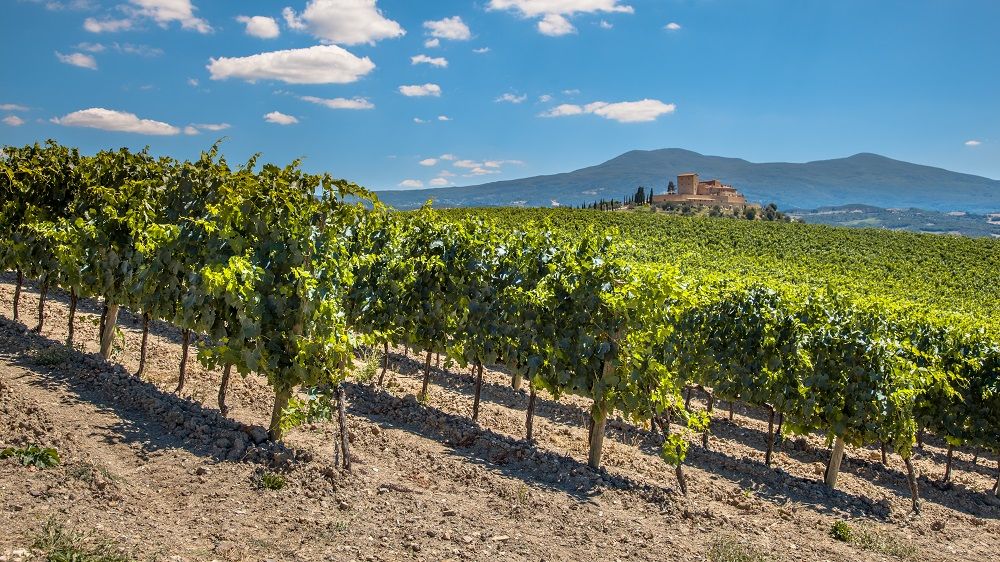Food Estate, Government Efforts in Maintaining Food Security in Indonesia

Maintaining Food Security in Indonesia
(Istimewa)During the first year of the pandemic, the United Nations Food and Agriculture Organization (FAO) warns the leaders of the nation about the possible negative impact the pandemic has on food security. In a written report, the FAO emphasizes the disruption the pandemic has on food supply chains and the major global economic slowdown that can cause a rise in prices of some foods, putting food out of reach for many people. This report, along with the growing national food needs, pushes the government to boost the development of the Food Estate program.
Definition of Food Estate
As stated in Indonesia.go.id, Food Estate is a food development concept that is carried out in an integrated manner, including agriculture, plantations, and even livestock in an area. Minister of Agriculture Syahrul Yasin Limpo expressed that national food security is the main goal of the Food Estate.
“This is in line with the national agricultural development goals, namely providing food for all people, improving farmers’ welfare, and boosting exports,” said Syahrul Yasin Limpo as reported from Tempo.
The Food Estate program is carried out with the concept of agriculture as an industrial system based on science and technology, capital, as well as modern organization and management. These plant cultivation activities will be carried out on a large scale that is a land of more than 25 hectares and with primary commodities such as rice, corn, soybeans, cassava, sweet potatoes, peanuts, fruits, vegetables, oil palm, sugar cane, and cattle or chicken.
Location of the Food Estate program
The government currently focuses on developing a Food Estate program in four areas Central Kalimantan, South Sumatra, North Sumatra, and East Nusa Tenggara (NTT). Director General of Agricultural Infrastructure and Facilities of the Ministry of Agriculture, Ali Jamil, explains that each area has its own commodity.
In the Central Kalimantan region, the Food Estate program is carried out in Kapuas Regency and Pulang Pisau Regency with rice as the primary commodities, along with other commodities in the form of horticultural crops, namely vegetables and fruits, Kelapa Genjah plantations, and ducks. The area of land used in the Food Estate program in this region includes an intensification of 14,135 hectares of land and a land extension of 22,500 hectares.
As for the South Sumatra region, the Food Estate program is carried out in the East Ogan Komering Ulu Regency and Banyuasin Regency with rice as the primary commodity. The area of land used in the Food Estate program in this region includes an intensification of 20,000 hectares.
While in North Sumatra, the Food Estate program is carried out in the Humbang Hasundutan Regency with the cultivation of shallots, potatoes, and other vegetables such as cabbage, red chilies, corn, and peanuts as the primary commodity. The cultivation is done on a 215 hectares area of land.
Lastly, in East Nusa Tenggara, the Food Estate program is carried out in Central Sumba Regency with corn and rice as the primary commodity. The total area of land used in the Food Estate program in this area is 10,000 hectares, divided into 5,620 hectares for the cultivation of rice and 4,380 hectares for the cultivation of corn.
The Benefits of Food Estate
According to the Ministry of Agriculture Research and Development websites, the Food Estate program will be managed in an agribusiness system that is firmly rooted in rural areas based on local community empowerment. It means that the Food Estate program will play a part in the regional development of the area it is implemented.
The Food Estate program will also increase the added value of local agriculture, help farmers develop large-scale farming and increase the absorption of agricultural labor by around 34.4 percent. Additionally, with the assistance of this program, there’ll be an integrated system of production, management, and trade centers, along with opening the potential for food exports to other countries. But most of all, the continuation of this program can help streamline the agricultural process from farm to table and help achieve food security.
Pupuk Kaltim support for Food Estate
PT Pupuk Kalimantan Timur (Kaltim), a subsidiary of Pupuk Indonesia, is a fertilizer producer that has been a part of the government’s effort in fulfilling food security. The company produces fertilizer from urea and multiple types of NPK fertilizers that are specified for plant needs. As a part of the State-owned Enterprises, PT Pupuk Kaltim has played an active role in supporting the effort of food security.
Not only by supplying subsidized and non-subsidized fertilizer, but PT Pupuk Kaltim also has its own program like the Makmur program that provides Agri inputs such as seeds and supply of fertilizer. The program also includes agricultural insurance to anticipate crop failures and purchase guarantees by offtakes. This program is in line with the Food Estate program that helps streamline the agricultural process from the beginning (planting assistance) to the end (processing and selling).
Written by: Safaanah
